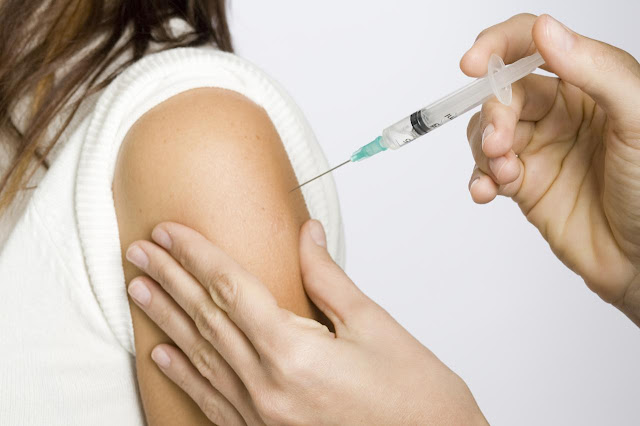Allergies Symptoms And Treatment?
What is allergy?
Allergy is a type of skin reaction, which usually gives its reaction against a particular food, clothing or substances such as drugs etc. Allergens are allergens, which are made from objects outside the body.
Allergies are very common, especially in children. In some children their allergies disappear as they grow up, but in some children it may last longer.
But it is not at all that allergies start in childhood. Adults can also develop allergies to things they were not previously allergic to.Allergies Symptoms And Treatment?
Allergies can become a problem that affects daily activities, although most cases of allergies are mild, which can be completely controlled. Cases of severe allergies are not very common, but one should be aware of them nonetheless.
How many types of allergies can there be?
There are many types of allergies. Some of the most common allergies are given below
:-
Drug allergy (allergy caused by drugs etc.) – An abnormal reaction (reaction) by the immune system to a drug etc.
Food allergy – An unpleasant or dangerous reaction by the immune system after consuming certain types of foods.
Contact dermatitis – the formation of a red rash on the skin due to touching or coming in contact with a substance.
Latex allergy – Allergic reaction to certain types of proteins, which are proteins found in natural rubber latex.
Allergic asthma – Asthma triggered by the same substance as the substance that triggers the allergic reaction.
Seasonal allergy – An allergic reaction that causes watery eyes, itching, sneezing, and other related things.
Animal allergy – an abnormal reaction of the immune system to animal saliva, urine, and skin cells.
Anaphylaxis – A serious and potentially life-threatening allergic reaction.
Allergy to mold – an unusual allergic reaction caused by mold spores
Allergy symptoms -
What are the symptoms of allergy?
You may experience symptoms of an allergic reaction within minutes of coming into contact with the things you are allergic to. However, sometimes the symptoms develop gradually over a few hours.
Problems with allergies can interfere with daily activities, although most allergies are mild. Sometimes a severe allergic reaction is called anaphylaxis, which is a severe allergic reaction.
If an allergenic substance enters the body through inhalation, it usually affects the nose, eyes or lungs. And if an allergic substance is eaten or drunk, it can potentially affect the mouth, stomach or intestines.
Symptoms of seasonal allergies can range from mild to severe, with common symptoms including:
Sneeze
runny nose
watery or itchy eyes
itching in the sinuses, throat, or earlobes
ear blockage (fluid filling in the ear)
Post-nasal drainage (mucus from the mouth)
swelling of the lips, tongue, eyes, or face
abdominal pain, feeling sick,
nausea or vomiting, diarrhea
dry, red, or patchy skin
Symptoms that work are common, including
Headache
respiratory distress
wheezing
cough
In some rare cases, allergies can lead to a severe allergic reaction, called anaphylaxis or anaphylactic shock, which can be life-threatening.It affects the whole body, and it starts developing within a few minutes of exposure to allergic substances.
Symptoms of anaphylaxis may include any of the above, and they may be accompanied by the following symptoms:
swelling of the throat and mouth
Shortness of breath
dizziness
confusion (confusion)
blue skin or lips
loss of consciousness or fainting
Anaphylaxis is a medical emergency that requires immediate treatment.
How are allergies treated?
skin allergies
Skin allergies can range from mild symptoms of itching and mild redness to severe allergy symptoms such as boils or blisters. Rashes can appear within 3 hours to a few days after exposure to allergens, then can last up to 3 weeks.
If you have been in touch, keep the following in mind
Do not touch other parts of the body, especially the face
Wash the affected area with soap and water for at least 10 minutes
Take a quick shower once in contact
To relieve itching, apply calamine or anti-itch lotion to the skin 3 to 4 times a day.
Apply hydrocortisone cream to the inflamed and irritated areas.
Wash your clothes and shoes every day with hot water.
In case of allergy to insect bites:
Most people have a skin reaction when they are bitten by an insect, but a more serious condition occurs when the insect proves to be allergic to that person.
Insect bite allergy treatment:
After the insect bite, wash the area thoroughly with soap and apply antiseptic medicine on it.Allergies Symptoms And Treatment?Applying calamine lotion or hydrocortisone cream to the area and cover it with a bandage.
If there is swelling in the place, then wrap ice in a cloth and apply it there.
Take antihistamine medication to reduce itching, swelling, and irritation.
Take aspirin to ease the pain.
Drug allergy treatment
If a person is allergic to a medicine, in most cases, doctors prescribe alternative medicines for them.
medicines
There are several types of anti-allergic drugs, the choice of drug and the way it is administered completely depends on the severity and severity of the allergic reaction.
For long-term relief from allergic substances such as dust mites or animal hair and hay fever, doctors recommend the following medicines:
Long-acting antihistamines, such as cetirizine. These medicines can reduce symptoms without causing sleepiness. These medicines can be taken only once a day, which has an effect for 24 hours.
Montelukast sodium are one such medication, which relieves symptoms like asthma.
Nasal corticosteroid spray is used for symptoms that are not relieved by antihistamine medications. These medicines work very well, and are quite safe, they have no side effects.Allergies Symptoms And Treatment?Whenever a severe allergic reaction occurs, call an ambulance or try to see a doctor right away.
I hope this article is helpful for you please comment your words👍




Post a Comment